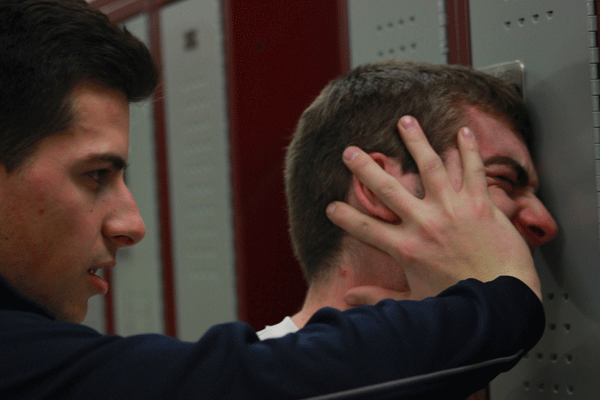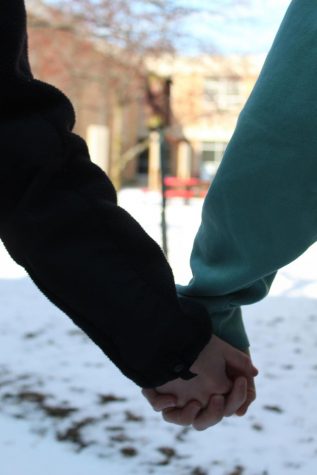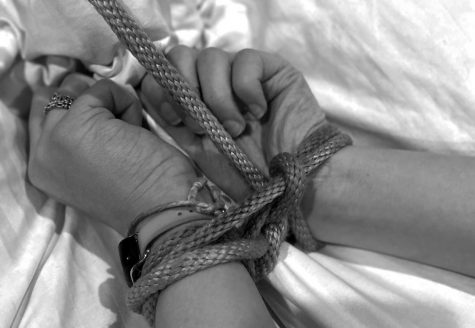To Go Too Far
1. To act in a way that is worse than is expected.
I thought my son would be safe at school,” the mother of a Maine West High School hazing victim said in an interview with The Huffington Post. “You think when you drop off your son, it’s a safe place to be. But I feel like the coaches should have kept him safe on the soccer field, and they didn’t do that.”
The hazing of this student started in September 2012. At practice, the coach of the soccer team sent his team on a run around the school. During the run, members of the freshman soccer team were jumped by the Varsity players and pushed into the grass. One boy had his shorts pulled down. He was pushed to the ground and was then beaten with a stick. The second boy had his shorts torn off, he was held down, beaten and had his genitals touched inappropriately.
The boys did not report the incident at the time of the attack. Later, the coach found out, but did not report the incident, even though he is obligated to under state law. The boys later spoke about the incident that November, and an investigation ensued.
Authorities charged six of the students to juvenile court with misdemeanor assault. Head Varsity coach Michael Divincenzo and head freshman coach Emilio Rodriguez were both fired because of the incident.
Three more students came forward later, saying they were also hazed at the school. The five athletes together sued the school for $200,000 each. The one million dollars was paid by the school in November 2016, bringing closure to the lawsuit.
This is one example of hazing at the high school level. Contrary to popular belief, hazing is not just secluded to college. According to psychologist Susan Lipkins, Ph.D., the severity of hazing has been on the rise in recent years. It was reported in the study that 47 percent of students going into college have already experienced hazing at the high school level, and 1.5 million students are hazed each year. Since 2011, 43 cases of hazing have involved students being sodomized. She believes this rise of extreme sexual hazing is tied to students attempting to one-up each other from hazing they personally experienced. She also found that 40 percent of athletes reported the coach knowing about the hazing incident, and less than 1 in 20 hazing cases are not reported.
Not all hazing cases are as extreme as Maine West High School, especially when it comes to the hazing that has happened in the past.
Antioch’s physical education and driver’s education teacher Christopher Bailey is also the head track and cross country coach. When he was in high school, there was a hazing ritual that occurred. Every year, the Varsity athletes would take the freshmen and throw them into a pond by the school.
Along with Bailey, psychology teacher Anton Borchert was a former athlete and coach. He also experienced hazing or “initiation” as a student and a coach in multiple sports including football, hockey and baseball.
In football, newest members of the Varsity team would have to cut their hair at the beginning of the season. In hockey, the old Varsity players would make food concoctions and the newest members of the team would be forced to eat them and not throw up for a minute. And in baseball, the newest members would carry around all the equipment all season long.
Borchert explained that hazing is an example of a term called “justification of effort.”
“It’s a way in the sports world to neutralize any of those individuals that thought they could come into an already existing team and be the focal point,” Borchert said. “They are breaking the person’s individual spirit to make them understand that if you go through the steps that we ask you to be a part of this group, we always have your back and we will always support you.”
Along with the justification of effort, Borchert also explained that many of the rash decisions that are made with hazing can be explained by the underdeveloped frontal lobe of teenagers and young adults, which is responsible for decision making.
“As you get older we can foresee how our current actions will impact us down the road,” Borchert said. “Young people, in general, lack the ability to foresee how their actions will affect them later.”
This could explain why some hazing cases tend to cross the line. One case of this hits closer to Antioch than Main West: Lake Zurich High School.
About a week before the Lake Zurich football team’s first and only playoff game of the year against Fenwick High School, the athletes were caught in a hazing incident that was described as “inappropriate” and “egregious.” The hazing happened in the locker room after a team meal, two days before the game. Punishments were handed out, and head coach David Proffitt and assistant coach Chad Beaver were put on paid administrative leave. In turn, they were not allowed to participate in the upcoming playoff game. Along with the coaches, the players involved had to go through anti-hazing education, which consisted of completing an online hazing prevention course, ten hours of community service, preparing a presentation for middle school students on bullying and hazing in sports and attending a workshop on positive decision-making and hazing prevention.
The Daily Herald released an article about this situation which prompted a police investigation. After a month, with not many participants willing to talk to the police, the case was dropped. They said that they did not hear any evidence of participants being forced to perform in the hazing, and no bodily harm had been done.
Borchert and Bailey have never allowed hazing to occur during their time coaching. If they did come across it happening, both believe that there is a proper way to dealing with hazing situations, which are different from the way the coaches at Maine West and Lake Zurich handled theirs.
Borchert said the consequence he would hand out to the players would depend on how severe the hazing was. If the hazing was extremely inappropriate, the player would be kicked out of the program. He also explained that getting the parents involved in the situation is the first move he would make.
The best way to prevent hazing from occurring in Bailey’s mind is communication.
“Making sure the kids understand what being part of the program means,” Bailey said. “Having some pride in their school and knowing what they do and say reflects not only on them but me as the coach, the program and the school.”
He also explained that laying down the rules upfront with players and the consequences that they would get if hazing occurs is one of the best ways to prevent hazing from happening.
There are psychological answers behind why hazing goes hand in hand with sports, as Borchert said. Students need to be actively smart about the decisions they make on and off the the field.
“There’s a line that you don’t cross,” Borchert said. “You just don’t do certain things.”








![The Black Lives Matter movement has become a growing trend in recent years. Everything people post on Instagram and everything [related to] politics is a trend now sophomore Kelsey Aviles said. Despite how serious of a topic it is, some individuals post about BLM specifically because it is trendy.](https://www.sequoitmedia.com/wp-content/uploads/2020/12/Untitled-Artwork-3-475x168.jpg)




Diane Bluthardt • Jan 28, 2017 at 10:26 am
Good job Bill. Good article. However, I am curious about what happens in girl’s sports. Does hazing occur there too? It has been a really long time since I was in high school but I don’t remember any hazing going on in sports then. I guess I am asking if it is just a guy thing.